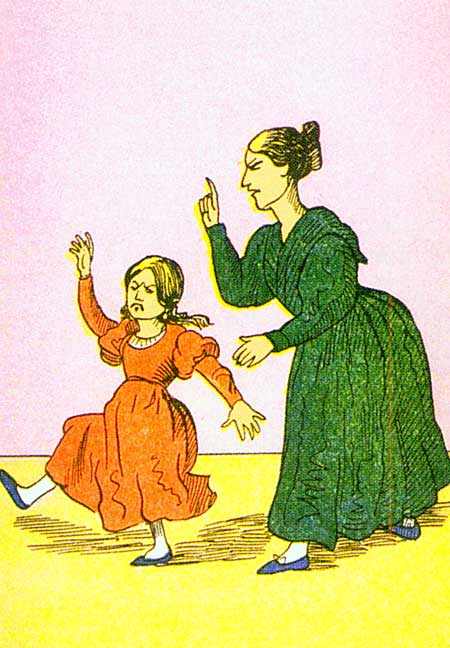I was walking through either Cobble Hill or Carroll Gardens the other day when I crossed paths with a mother who appeared to be having some sort of argument with her son, who appeared to be about five years old. We were walking in opposite directions. Both he and his mother had their hands on his scooter – that horrible invention. I could not hear what the kid was blubbering, but in the brief moment I was within earshot, I distinctly heard the mother twice tell her child, engaged in some dispute or another, “and I’m saying no.”

I’m Saying That Something Is Wrong
Well, at least she didn’t say “and I’m like saying no.” That would be worse.
But this was not good. It was not the best. Imagine that we have a chart. One end is “The Best.” The other end is “Not the Best.” What I just described would be very much on the “Not the Best” side of the chart.
Who is the Authority Figure?
I identified two problems. To start, why is the mother having an argument with her barely-sentient scooter-wielding child? Who is the authority figure here? She needs to lay down the law, not have a back and forth with him. She should take the scooter away too. That honestly has nothing to do with this particular case. Those things are horrible. Very anti-pedestrian. Put walkers first.
But I digress.
What is With This Construction?
The second problem.
“I’m saying no.”
What is with the “I’m saying” lead in? Is it not enough to say no? Is this a relative of “do you know what I’m saying?” At least in the “do you know” case, the person is ostensibly asking if the listener understood what he or she said before. I do not understand the “I’m saying…” construction. Why not just say it? “No.” Is that not enough?
Justin and Justina Highlight the Problem
Consider a different example from my fictional New Leaf Journal dialogue duo, Justin and Justina:
Justin: Where do you want to eat? Justina: I don't make decisions. You decide. Justin: That wasn't the correct way to order me around. Justina: Huh? Justin: "I'm saying that you decide." Justina: What? Justin: I'm also saying that I don't make decisions. Justina: ... Justin: I'm asking if you forgot. Justina: What is wrong with you? Justin: I'm saying I'm a little maxed out on existentialism. Justina: ... Justin: I'm asking if that was what you wanted, Nick.
Thank you! That was perfect. This beautiful miniature dialogue illustrates clearly and beyond doubt that in order to say no, one should just say no.
Just Say No
I am just old enough to remember the “Just Say No” commercials during cartoons. The drug-free cool kids did not tell the losers trying to give them drugs, “I’m saying no.” They just said no.
Just say no.